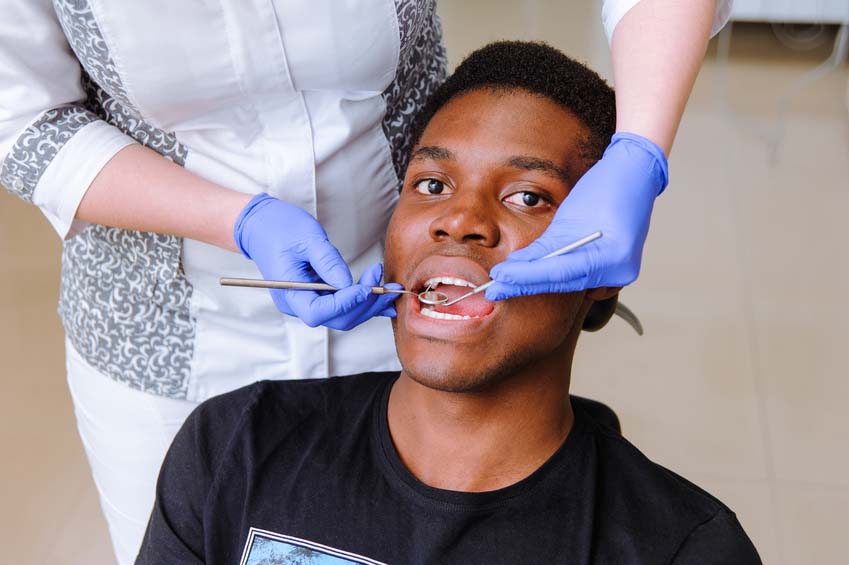- Benson 01491 833 380
- Kingsclere patients, click here
CONTACT US
- •
EMERGENCIES
- •
FIND US
Preventive dentistry
Preventive dentistry

The ideal form of dentistry is preventative. Regular visits to the dentist, as advised by your dental team, along with a good home care regime, are recommended to ensure good oral hygiene is maintained. These regular visits can also detect oral health problems long before the onset of symptoms of serious dental problems.
During an oral health assessment, our dentists will examine the whole mouth, including all of the structures inside and outside (e.g. your jaw joint), and will screen for mouth cancer. Instruments, tests, clinical expertise and x-rays are used to help detect cavities and other tooth and jaw problems.
After an examination, you and your dentist can discuss the results and plan the best way to deal with any problems.
Mouth Cancer
There are, on average, over 4,400 new cases of mouth cancer diagnosed in the UK each year. This figure is still increasing. Whilst research has shown that mouth cancers are more common amongst people over 40, particularly men, it is also becoming more common in younger people and women. Anyone can be affected by mouth cancer, whether they have their own teeth or not. Smoking and heavy drinking increase the risks.
Mouth cancer can affect the lips, tongue, cheeks and throat. It can appear as a painless mouth ulcer that does not heal normally. Less often, a white or red patch in the mouth may develop into a cancer. It is important to visit your dentist if these areas do not heal within three weeks.
Early detection
Mouth cancer can often be spotted in its early stages by your dentist during a thorough mouth examination. If mouth cancer is recognised early, then the chances of a cure are good. Our dentists check for symptoms of mouth cancer in patients during each examination. They will examine a patients head and neck, looking for abnormalities or swelling, and will look carefully inside all areas of the mouth, including the lips and tongue. If your dentist feels further examination is necessary, they will refer you to a specialist who will see you promptly to give a second opinion. However, not all suspicious areas turn out to be cancerous.
Do people die from mouth cancer?
Yes. Nearly 1,700 people in the UK die from mouth cancer every year. Many of these deaths could be prevented if the cancer was caught early enough. As it is, people with mouth cancer are more likely to die than those with cervical cancer or melanoma skin cancer.
Can mouth cancer be cured?
If mouth cancer is spotted early, the chances of a complete cure are good. The smaller the area or ulcer the better the chance of a cure. However, too many people come forward too late, because they do not visit their dentist for regular examinations.
Dental crowns
Crowns can be used to cover and protect damaged or weak teeth
They can also improve the appearance of misshapen or discoloured teeth
FIND OUT MORE


